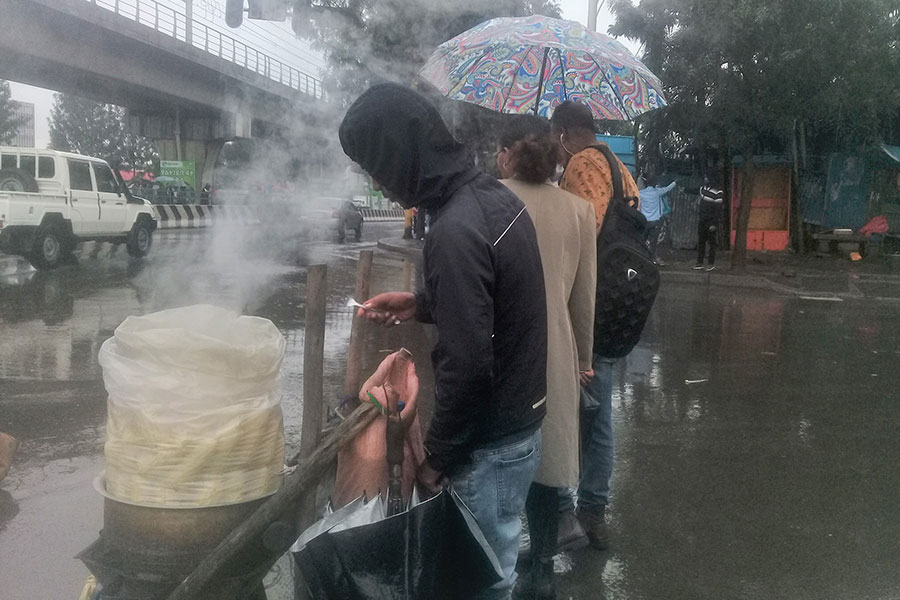
In-Picture | Mar 02,2019
It was two weeks ago or last year, in the last days of December 2021. A day with a gusty yet sunny, cool afternoon, I arrived close to five o'clock at my house. Strange these days, I was away from my computer screen for the entire day. Yet, my dash to where it is was in vain. There was no power in our neighbourhood.
I did not want to gamble with the power left in my laptop’s battery, as I did not want to miss sitting in front of it at nightfall, should the power not return. It was then that it came to my mind that the time was fit for a walk. It was also a bit embarrassing that my list of New Year’s resolutions minimised the frequency of sitting in front of a computer screen.
It looked awkward, for a while, to me how my mood swung from that of annoyance to excitement, straight away fetching the psychological metaphor of “cognitive reframing.” It is the process of changing the way one looks at something.
Lost in thought, I arrived at a supermarket close to my neighbourhood. Its Christmas vibe followed me until I finished shopping and left the place. Then, I continued my walk to a popular gulit, a roadside market in my vicinity.
As I approached it, I passed street food corners, serving customers on queues. The offerings ranged from ertib, chopped boiled potatoes with pepper and shredded potato sandwiches, which are popular these days, to potato chips, samosa, and roasted cereals in variety. The new entrant to the scene is fish fried with boiling oil on the spot. I saw customers who parked their vehicles around for takeaways.
I continued to other street vendors. As the scent of the spicy aroma was struggling with my mask, I was amazed by the street vendors’ service spirit in looking after their customers. Core sales capabilities such as relationship management, negotiation and personal characteristics of flexibility and persuasiveness are plenty here, more so than at the supermarkets I frequent.
Sure, there are concerns when it comes to knowledge and application of food safety, proper food handling, storage and personal hygiene. There is a deficit in heeding foodborne illness prevention and personal hygiene. There are also concerns if regular food supplies acquisition, delivery and stocking are within expiry dates. But the service, how the street vendors look after their customers, is something that is missing at formally registered food vendors.
As it is true to hotel service attendants, many supermarket sales workers need to be adequately trained in customer handling and being familiar with sales products as their street counterparts on the street, combining it with food handling and safety. When it is clear that education and training do not work in achieving compliance, a system for action to correct the behaviour needs to be there.
My experience dealing with the skill gaps in “customer service” and “safety” proved that it involves “self” in the equation. If the skills are adopted, they become personal attitudes.
Service providers are not good at ensuring that their goals are aligned with that of their employees. They do not give them the necessary agency and motivation to be extra mindful in dealing with their customers. The street vendors, on the other hand, are their own bosses. Unlike the employees at a supermarket or a hotel, their bottom line is connected to whether they can attract every potential customer.
These days in Ethiopia, the consumers have additional service requirements, both a blessing and curse to the service industry. It is an opportunity to grow but also a curse for those unable to compete.
PUBLISHED ON
Jan 07,2022 [ VOL
22 , NO
1132]


In-Picture | Mar 02,2019

Radar | Oct 01,2022

In-Picture | Sep 22,2024

Fortune News | Nov 02,2019

Featured | Jun 29,2025

Commentaries | Feb 10,2024

Sunday with Eden | Feb 13,2021

Radar | May 07,2022

Life Matters | Oct 01,2022

Life Matters | Jul 27,2019

Dec 22 , 2024 . By TIZITA SHEWAFERAW
Charged with transforming colossal state-owned enterprises into modern and competitiv...

Aug 18 , 2024 . By AKSAH ITALO
Although predictable Yonas Zerihun's job in the ride-hailing service is not immune to...

Jul 28 , 2024 . By TIZITA SHEWAFERAW
Unhabitual, perhaps too many, Samuel Gebreyohannes, 38, used to occasionally enjoy a couple of beers at breakfast. However, he recently swit...

Jul 13 , 2024 . By AKSAH ITALO
Investors who rely on tractors, trucks, and field vehicles for commuting, transporting commodities, and f...

Oct 25 , 2025
The regulatory machinery is on overdrive. In only two years, no fewer than 35 new pro...

Oct 18 , 2025
The political establishment, notably the ruling party and its top brass, has become p...

Oct 11 , 2025
Ladislas Farago, a roving Associated Press (AP) correspondent, arrived in Ethiopia in...

Oct 4 , 2025
Eyob Tekalegn (PhD) had been in the Governor's chair for only weeks when, on Septembe...